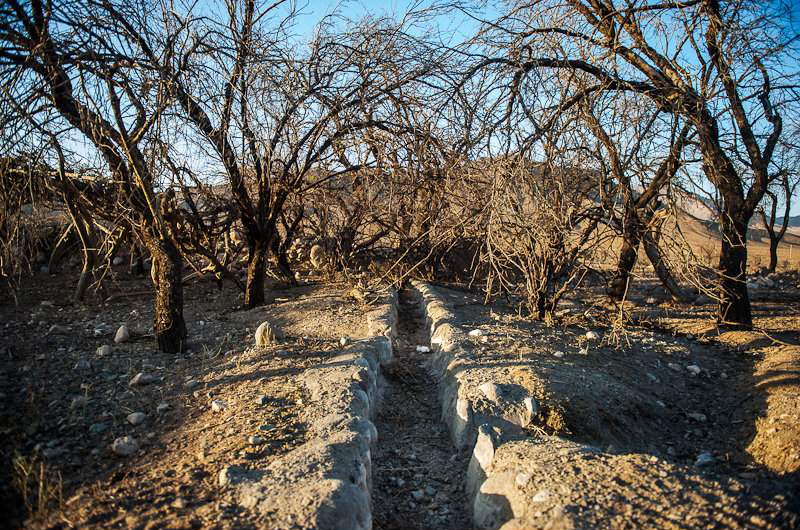The large number of illegal water wells in Kerman is getting the already water-stressed province into such deep trouble that it might soon face difficulty supplying drinking water.
Due to declining precipitation and mismanagement of surface water resources, farmers in the southern province have resorted to groundwater reserves to irrigate their lands.
Large amounts of water are withdrawn from deep wells, which are dug deeper every year due to dwindling groundwater levels.
According to local officials, some wells go as deep as 300 meters underground, while the average depth of a water well is between 30 to 60 meters worldwide.
Each year, 1.1 billion cubic meters of water are drained from the drought-stricken province’s aquifers. As a result, the level of dissolved minerals (i.e. hard water) in some regions has increased such that the water cannot be used for farming any longer.
In spite of all warnings, excessive withdrawal of water from aquifers continues in the agriculture sector to produce products that—more often than not—bring in so little revenue that it can hardly be called justified or profitable.
More than 90% of the country’s water resources are used up by unsustainable and wasteful farming practices.
Kerman has 22,000 wells, of which 14,000 have been dug illegally. In other words, local authorities have no control over how much water is withdrawn from them.
What makes matters even more complicated is that these wells, regardless of their legal status, feed Kerman’s farms, so sealing them would have severe repercussions on the province’s agriculture.
No Effective Measures
Speaking to Mehr News Agency, Mohammad Reza Pour-Ebrahimi, a lawmaker from Kerman, said the wells should not have been dug in the first place and what is needed today is a “comprehensive plan to manage the remaining water resources” in the province.
A suggestion to install meters on the wells has received widespread criticism.
Ali Mohammadi, secretary of Zarand Farmers Association, rejected the idea and stressed that the move would have drastic impacts on the agriculture sector.
“Those who use legal wells must not pay the price of what illegal users do,” he said, demanding that the government seal the unauthorized wells so that the legal ones can continue their operations.
Although water scarcity in Kerman is a matter of common knowledge, no effective measures have been taken to address the worsening problem.
Pour-Ebrahimi suggested that farmers should be obliged to pay for the water that they use so as to encourage them to be mindful of their consumption.
Experts say farmers must adopt modern irrigation methods and avoid growing water-intensive crops in regions suffering from a shortage of water.
Mohammadi warned that should the current situation continue, farmers of the province will soon feel compelled to leave their farmlands and move to the slums of metropolises and take up low-paid menial jobs, provided they are lucky enough to find a job.
“Migration is also very likely to increase, once drinking water supply becomes a struggle,” he added.
According to Isa Kalantari, a former agriculture minister, prolonged drought and extreme water stress could displace 50 million people unless early and effective actions are taken to curb their impact.


